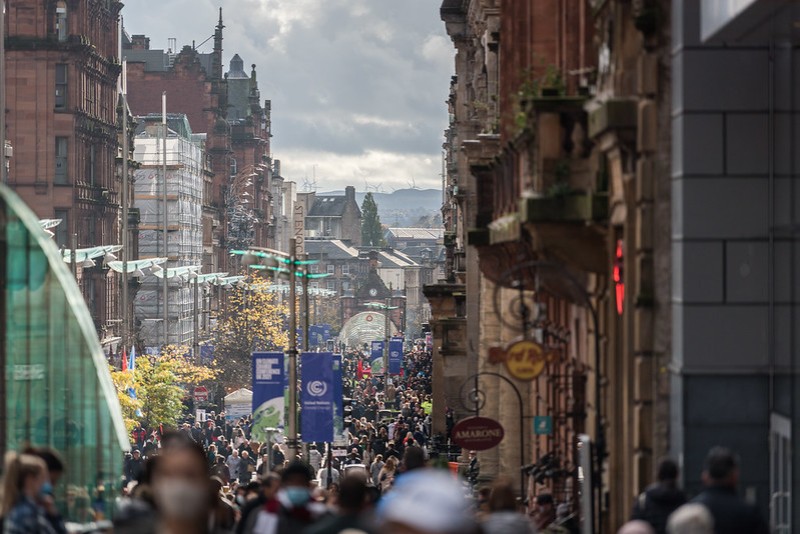*By Peter Pavlovič
The highly expected 26th UN Climate Change Conference of the Parties (COP26) commenced last week in Glasgow. Churches and faith communities were visible and present in Glasgow.
This year’s COP is the 26th edition of the annual gathering held by the UN Framework Convention on Climate Change. It has taken place every six years after around 200 countries from across the world signed the historic Paris agreement, highlighting an ambition for a joint response to climate change to keep global warming below 1.5 degrees Celsius.
Six years after the Paris agreement, steps undertaken in facing climate change are far below what is necessary and far below the pledges made in Paris. Instead of decreasing, CO2 emissions are still growing. The developed countries of the world, responsible for the majority part of accumulated carbon in the atmosphere, are reluctant to take decisive steps. The conference in Glasgow is considered by many to be a last opportunity to get the process of an effective response to global warming back on track before it is too late.
The UN General Secretary António Guterres made it clear when he said, “Our addiction to fossil fuels is pushing humanity to the brink. We are digging our own graves. Our planet is changing before our eyes — from the ocean depths to mountain tops, from melting glaciers to relentless extreme weather events… We face a moment of truth.”
Europe, EU and climate change
The EU and most of the European countries from inside and outside of the Union clarified their ambitious plans in the run up to COP26. The EU is committed to getting climate neutral by 2050 and lower CO2 emissions by 55% by 2030 in comparison to levels in 1990. The EU is a major donor in financial aid, helping developing countries in their response to climate change and in adapting to its impacts, and made clear its ambition to be a global leader in these efforts. Still, a number of questions and concerns persist whether it be in individual European countries (members and non-members of the Union), or in formulating a collective European approach.
After several years it has become clear that an effective response to climate change requires much more than far-reaching and ambitious political decisions, respecting the science, implementing innovations and wide use of green, climate-friendly technologies. With that in mind, one of the leading concerns of the EU approach in its climate plans is “not to leave anyone behind”. Not causing damage but being friendly to nature, not being destructive but taking care of the earth, have to be a collective responsibility.
Churches mostly contributed to the Glasgow conference through an ecumenical team under the leadership of the World Council of Churches. The Conference of European Churches, as well as number of individual European churches were represented, together with global ecumenical bodies such as ACT Alliance and the Lutheran World Federation.
Thanks to an efficient cooperation among local churches in Glasgow and in Scotland, churches’ actions were visible not only inside the conference venue, but equally around the city. In several events held around COP26, churches’ joined hands in expressing concerns, holding discussions and prayers, including an ecumenical worship service in Glasgow cathedral.
Care for creation has strengthened ecumenical fellowship of churches, as well as bringing world religions closer. This is not only increasingly recognised but also increasingly appreciated and increasingly visible. Churches are at the forefront in raising awareness on the global environmental crisis, praying and taking actions to protect our common home.
*Rev. Dr Peter Pavlovic is the Study Secretary of the Conference of European Churches. At the same time, he leads the European Christian Environmental Network and is member of the World Council of Churches working group on climate change.
